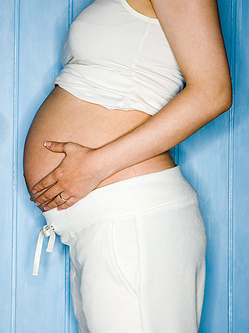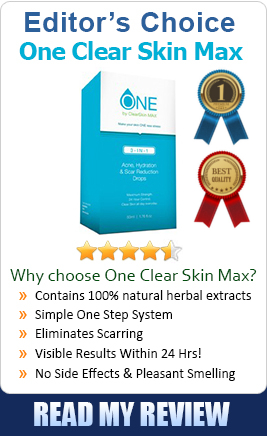Looking to seek for a treatment for adult acne is always the right thing to do. But caution needs to be taken too as it is not possible at all times to undertake this decision. This is the case for pregnant women. When a woman is going through pregnancy, she is at her most delicate stage of her life.
It involves a lot of care and a lot of do’s and don’ts to follow. So what happens when a pregnant woman is suffering from acne? It all depends on what kind of acne she is suffering. If she is suffering from severe acne like vulgaris, it involves medication in oral form.
That’s where complications can arise due to pregnancy. If she decides to take action to cure her acne, then she must definitely seek advice from a dermatologist. Then she is safe enough to get the right and proper treatment.
Anyway, it’s a good thing to have some knowledge about which medications to be avoided during pregnancy and also for those who might get pregnant in the near future. These medications can be harmful for the mother and especially to the fetus. Please bear with me as there will be some medical terms used in here which you may not understand. But I’ll do my best to interpret it in the simplest of language.
Hormonal Therapy
What is Hormonal Therapy?
As the name itself implies, the effect of masculinising hormones called androgens are believed to activate acne. This occurs on oil glands that enlarge and become increasingly sensitive during puberty. As a result, excessive oil secretion occurs and pores get blocked.
This leads to non-inflamed spots acne spots known as whiteheads and blackheads. The acne bacteria start breeding in the oil-rich pores and inflammation takes place which leads to red pimples, pustules and lumps.
Thus hormonal therapy is used to interrupt this initial phase of acne development. This kind of therapy includes estrogen, flutamide and spironolactone. Pregnant woman should definitely avoid these unless they are administered by a specialist and monitored by them.
The risks of hormonal therapy require regular breast and pelvic exams to protect against the increased risk of certain types of cancers. It is very important that dermatologists work with the patient’s gynecologist to decide on the most appropriate treatment and follow-up especially in women over the age of 40 or those who might be smokers.
Isotretinoin
Isotretinoin is an oral drug also used to prevent and treat cystic acne. The side-effects that typically require treatment are aggravated skin, dry eyes, dry nose, and sun damage on your lips. But this depends on the dosage level. It is mainly used in chemotherapy medication for the treatment of brain cancer, pancreatic cancer and others.
Isotretretinoin’s most well-known side effect is that it acts as a severe teratogen. Meaning it has the ability to disturb the growth and development of an embryo or fetus. This will ultimately cause birth defects. Again, this treatment should be monitored only by an expert. I’ve listed here some common birth defects that are associated with oral isotretinoin.
- Skull abnormalities/deformities
- Ear abnormalities/deformities
- Deafness
- Cleft palate
- Brain abnormalities/deformities
- Heart abnormalities/deformities
- Hormonal abnormalities
Oral Tetracyclines
Oral tetracyclines makes as the next one in my list. Traces of this medication include doxcycline, tetracycline and minocycline. This drug has multiple side effects and it varies on every person taking it. Severity of the side effects also depends on the dosage levels being administered on each individual.
Common side effects are discoloration of the teeth, nails and bone disorders. Hepatotoxicity and liver failure are also reported from taking this medication. Bulging fontanels in infants and intracranial pressure in adults are one of the side effects too. I wouldn’t want to go more into details on this as the side effects already show how bad it is for pregnant women or those who are breastfeeding.
Topical Retinoids
Others in my list include topical retinoids such as tazarotene, adapalene and tretinoin.
Common side effects of tazarotene are allergic reactions such as skin rash, itching, difficulty in breathing, tightness in the chest, swelling of the mouth, face, lips, or tongue. This list of side effects can grow longer for severe cases.
Adapalene is a gel used for the treatment for pimples. The side effects are not quite proven on pregnant women though, it’s best to avoid direct contact with the sun for too long. When applied on the skin, it’s very sensitive to sunlight.
Skin could become sunburned more easily due to prolonged exposure. If you have a history of sensitivity to sunlight, inform your physician before using this drug.
Tretinoin is also another gel used for acne vulgaris. Some general side effects of this drug are bone pain, dry skin and mouth, fever, hair loss, headache, increased sweating, itching, nausea, rash, tiredness, vomiting and weakness. Severe cases will lead to hearing loss and heart attack.
Frankly speaking, it’s best to avoid all these medications, whether you are pregnant or not. But if you have to, then you better be under the care of a dermatologist or any experts in the field of such usage of drugs.
I prefer to round up this article with a bit of simple advice to all pregnant woman. It’s your baby that you are going to deliver. You have to ensure that you are at your best health possible as it affects the fetus if you are not. Your face can wait. Just abstain from these medications for the time being. You are not going to be pregnant forever aren’t you?





